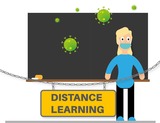
In this article we describe and highlight the main problems and Suggestion regarding the education system due to Covid-19.
- Subject:
- Information Science
- Material Type:
- Case Study
- Author:
- Arslan Ahmad
- Date Added:
- 08/22/2021

In this article we describe and highlight the main problems and Suggestion regarding the education system due to Covid-19.
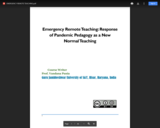
The main thrust is to explore conceptual foundation, instructional design, delivery mechanisms, Crisis Management, and Benchmark proposals for high-performing Emergency Remote Teaching plans. Since the Pedagogical Approach of ERT is also based on Humanizing Pedagogy and Pedagogy of Care to adapt to student needs, some other aspects include assessing the system’s current digital infrastructure (internet, device access), student and teacher digital capabilities, and budget availability must be considered while adopting emergency remote teaching. This work will prepare the school, university, and college teachers to acquire 21st-century skills and competence along with technology-supported pedagogical innovations based on different technologies, digital tools, and techniques to enrich the emergence of remote teaching experiences.
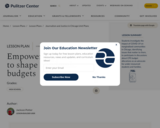
The Chicago Public Schools typically operate with a $7.7 billion annual budget that now has over $2.3 billion in federal stimulus funding to address inequities, COVID-related impacts and gaping needs. That is a 30% increase beyond a typical CPS budget that normally has very little room to address historic inequities. However, there is no participatory budget process in place to allow students or CPS families to have their voices heard in the process. This unit plan is designed to change that and provide opportunities for students to directly influence the budget process at this critical moment when historic inequities have widened.
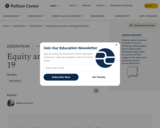
As of April 16, 2021, about 37.1% of Chicago residents have received at least one dose of the COVID-19 vaccine. But the question is: WHO is getting vaccinated? In this unit, students will identify inequities in vaccine distribution in Chicago and then explore why these inequities exist. Students will then work to take action to address these inequities.

What does formative assessment look like during distance learning? Without proximity, how can teachers gather and act on “in-the-moment” information – the behaviors, emotions, and situations that affect learning and inform instruction?
This resource provides explanations, sample questions, and possible actions to implement formative assessment during distance learning scenarios.
Image by Peggy und Marco Lachmann-Anke from Pixabay
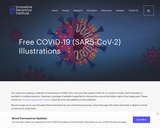
Our artists are creating a collection of illustrations of SARS-CoV-2, the virus that causes COVID-19, in a variety of styles. Each illustration is available in multiple iterations. Download a package of editable image files by clicking the arrow at the bottom right of the image panel. Please review our licensing requirements below. Check back for new additions to the collection.
We encourage you to use and adapt these illustrations for non-commercial purposes.

This resource is a video abstract of a research paper created by Research Square on behalf of its authors. It provides a synopsis that's easy to understand, and can be used to introduce the topics it covers to students, researchers, and the general public. The video's transcript is also provided in full, with a portion provided below for preview:
"Within its first several months, the COVID-19 pandemic had already affected more than 33 million people and claimed more than 1 million lives. While vaccines are helping slow the spread of the disease. transmission rates in some areas remain high. And the rise of new viral mutations means continued vigilance is required. Unfortunately, current genome sequencing methods are lacking, with none managing to combine high precision, a simple workflow, and low cost in one tool. The recently developed Coronavirus Genomic Surveillance (CorvGenSurv) platform is designed to close that gap. CorvGenSurv amplifies viral RNA samples and sequences them in three segments via long-read, high-throughput sequencing. This design reduces sequencing data waste, thus preventing dropouts in genome coverage, and the long-read approach makes the sequencing workflow simpler than short-read sequencing..."
The rest of the transcript, along with a link to the research itself, is available on the resource itself.

The COVID-19 pandemic worsened energy insecurity in the US, particularly for vulnerable populations. Prior to the pandemic, around 25% of low-income households struggled to pay energy bills, but during the early months of the pandemic, nearly 13% couldn't afford them. Racial and ethnic disparities were exacerbated, with Black and Hispanic households facing higher odds of disconnection

This resource is a video abstract of a research paper created by Research Square on behalf of its authors. It provides a synopsis that's easy to understand, and can be used to introduce the topics it covers to students, researchers, and the general public. The video's transcript is also provided in full, with a portion provided below for preview:
"Critically ill COVID-19 patients under invasive mechanical ventilation (IMV) are at greatly increased risk of death compared to the general population. While some drivers of COVID-19 disease progression, such as inflammation and hypercoagulability, have been identified, they do not completely explain the mortality of critically ill COVID-19 patients, making a search for overlooked factors necessary. A recent study examined the virome of tracheal aspirates from 25 COVID-19 patients under IMV. These samples were compared to tracheal aspirates from non-COVID patients and nasopharyngeal swabs from individuals with mild COVID-19. Critically ill COVID-19 patients had elevated expression of human endogenous retrovirus K (HERV-K), and elevated HERV-K expression in tracheal aspirate and plasma was associated with early mortality in those same patients. Among deceased patients, HERV-K expression was associated with IL-17-related inflammation, monocyte activation, and increased consumption of clotting factors..."
The rest of the transcript, along with a link to the research itself, is available on the resource itself.
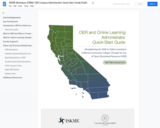
This OER campus administrator guide, officially entitled "OER & Online Learning: Administrator Quick Start Guide, Strengthening the Shift to Online Learning in California Community Colleges Through the Use of OER", is an outcome of a project by ISKME, supported by a grant from the Michelson 20MM Foundation, to conduct a study and develop a set of resources to accelerate OER use for distance education, especially the urgent shift to remote learning during the pandemic in 2020.
The Guide, created in collaboration with a selection of OER and online education champions across California community colleges (CCC), seeks to support community college administrators in California and beyond in more effectively supporting faculty use of OER as they work to address the reality of online learning in response to COVID-19 and future disruptions. The guide provides quick tips and starting points for campus administrators as they work to create the policy and practice environments needed to foster increased OER use for online learning.
See the associated OER and Online Learning: Faculty Quick-Start Guide for more in-depth tools and resources targeted to faculty and instructional design support, at: https://www.oercommons.org/courses/oer-online-learning-faculty-quick-start-guide

This resource is a video abstract of a research paper created by Research Square on behalf of its authors. It provides a synopsis that's easy to understand, and can be used to introduce the topics it covers to students, researchers, and the general public. The video's transcript is also provided in full, with a portion provided below for preview:
"An effective, tightly regulated immune response is critical for patients to recover from viral infections like COVID-19. Understanding immune regulation can allow researchers to develop better therapeutics and management techniques for patients. One class of factors involved with immune regulation are soluble immune mediators, which play roles in the dynamic interactions between ligands and membrane-bound receptors. Normally, soluble immune mediators help maintain and restore health after pathological events, but sometimes their dysregulation causes pathology instead. SARS-CoV-2 infection impacts many of these soluble immune mediators and, through them, many physiological processes. Thus, dysregulated shifts in the concentration of some of these molecules could be playing a significant role in COVID-19 severity and mortality..."
The rest of the transcript, along with a link to the research itself, is available on the resource itself.

This half-semester course introduces computational thinking through applications of data science, artificial intelligence, and mathematical models using the Julia programming language. This Spring 2020 version is a fast-tracked curriculum adaptation to focus on applications to COVID-19 responses.
See the MIT News article Computational Thinking Class Enables Students to Engage in Covid-19 Response
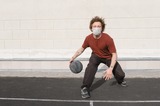
Práctica Curso Open Science

A "Linha do tempo: COVID-19 x Educação no Paraná/Brasil" é parte integrante da dissertação de mestrado de Maria Fernanda Lopes de Freitas intitulada “A TRANSFORMAÇÃO DO TRABALHO DO PROFESSOR: COANÁLISE DAS ATIVIDADES DOCENTES DURANTE A PANDEMIA COVID-19 ATRAVÉS DA CLÍNICA DA ATIVIDADE ”, sob orientação do Profº Manoel Flores Lesama e da Profª Flavia Fazion no Programa de Mestrado em Ensino das Ciências Ambientais (PROFCIAMB) da Universidade Federal do Paraná (UFPR).
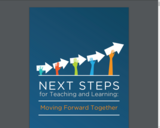
This final report from the 'Next Steps for Teaching and Learning' project was to address the question, in the context of COVID-19, ‘What have we learnt and what does it mean for the future of teaching and learning in Irish higher education?’
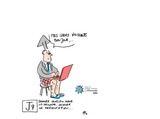
Le COVID-19 a débarqué et avec lui son lot de bouleversements. Basculement du jour au lendemain vers des enseignements à distance et adaptation express du corps enseignant aux outils en ligne. Benoît Raucent, professeur à l’Ecole polytechnique de Louvain et président du Louvain Learning Lab, en profite pour croquer chaque jour une anecdote, une remarque, une situation vécue qui illustre bien ce quotidien bousculé. Retrouvez ses dessins dans cette collection.
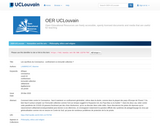
Comment lutter contre le Coronavirus : faut-il maintenir un confinement généralisé, même dans la durée, comme dans la plupart des pays d'Europe de l'Ouest ? Ou bien faut-il surtout compter sur l'immunité collective comme l'ont (un temps) suggéré le Royaume-Uni, les Pays-Bas ou la Suède ? Dans les deux cas, lutter contre cette pandémie de COVID-19 passera forcément par des choix douloureux, qu'on va discuter dans cette vidéo. Nous discuterons les pistes de réponses qu'un raisonnement utilitariste/conséquentialiste peut donner à ces dilemmes, en envisageant notamment la question difficile des systèmes de pistage/traçage du virus par géolocalisation comme mis en oeuvre en Corée du Sud, qui pose de nombreux problèmes de protection de la vie privée.
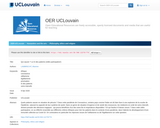
Quels patients sauver en situation de pénurie ? Dans cette pandémie de Coronavirus, certains pays comme l'Italie ont dû faire face à une explosion de la courbe de l'épidémie, saturant la capacité de leur système de santé. Dans ce genre de situation d'urgence et de rareté des ressources, les médecins en unité de soins intensifs doivent prendre des décisions tragiques : qui pourra bénéficier d'un des rares lits et respirateurs disponibles ? Et qui faudra-t-il laisser mourir ? Dans cette vidéo participative, on va réfléchir ensemble aux différents critères éthiques pour trier les patients dans le contexte d'une pandémie, dans l'attente du développement d'une immunité collective au Covid-19. On contrastera en particulier les réponses issues de l'utilitarisme ou de l'égalitarisme sur cette question.

This document provides guidance about issues related to using videoconferencing to support continuous learning and student data privacy and online safety.
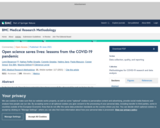
In the last decade Open Science principles have been successfully advocated for and are being slowly adopted in different research communities. In response to the COVID-19 pandemic many publishers and researchers have sped up their adoption of Open Science practices, sometimes embracing them fully and sometimes partially or in a sub-optimal manner. In this article, we express concerns about the violation of some of the Open Science principles and its potential impact on the quality of research output. We provide evidence of the misuses of these principles at different stages of the scientific process. We call for a wider adoption of Open Science practices in the hope that this work will encourage a broader endorsement of Open Science principles and serve as a reminder that science should always be a rigorous process, reliable and transparent, especially in the context of a pandemic where research findings are being translated into practice even more rapidly. We provide all data and scripts at https://osf.io/renxy/.